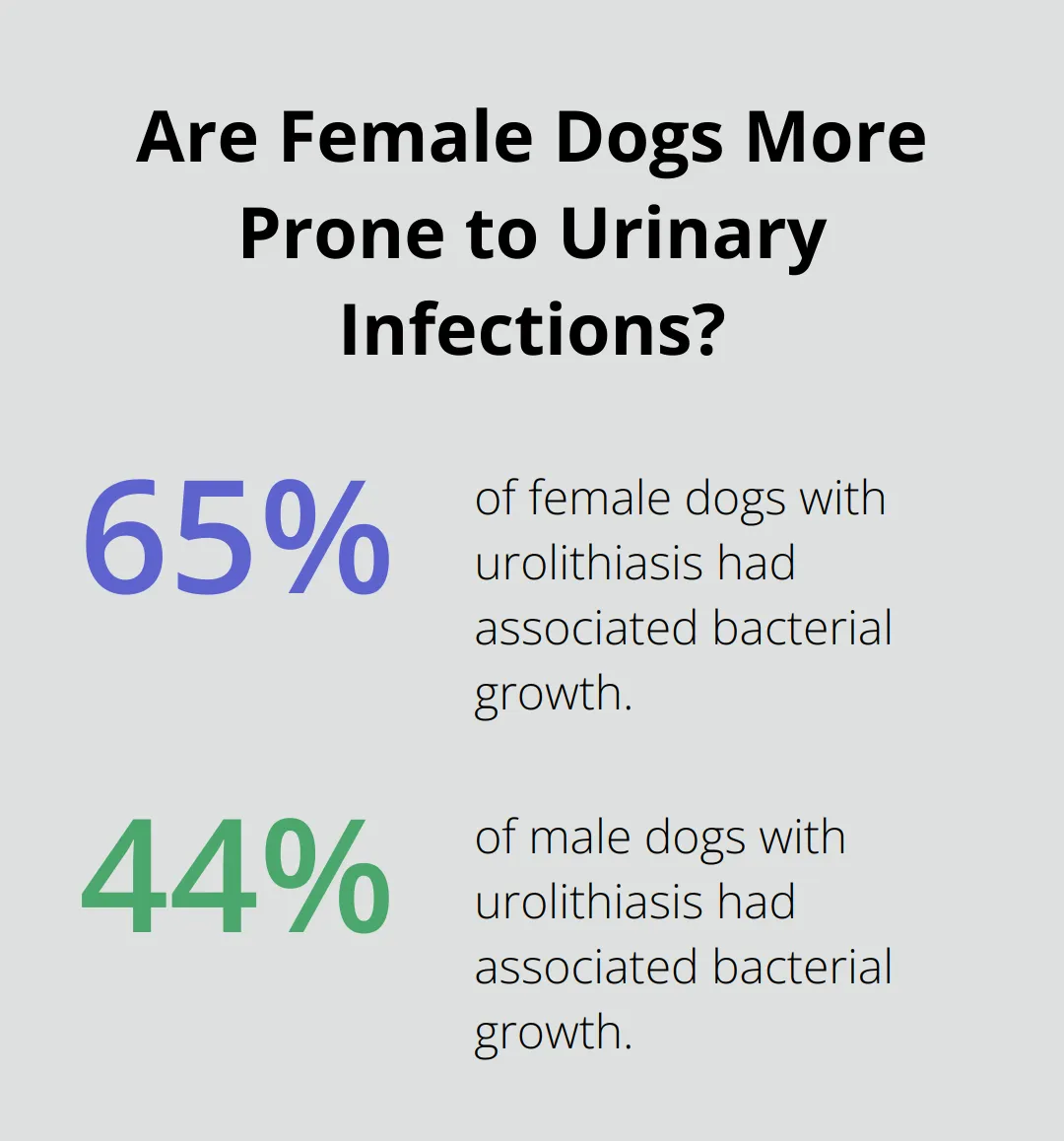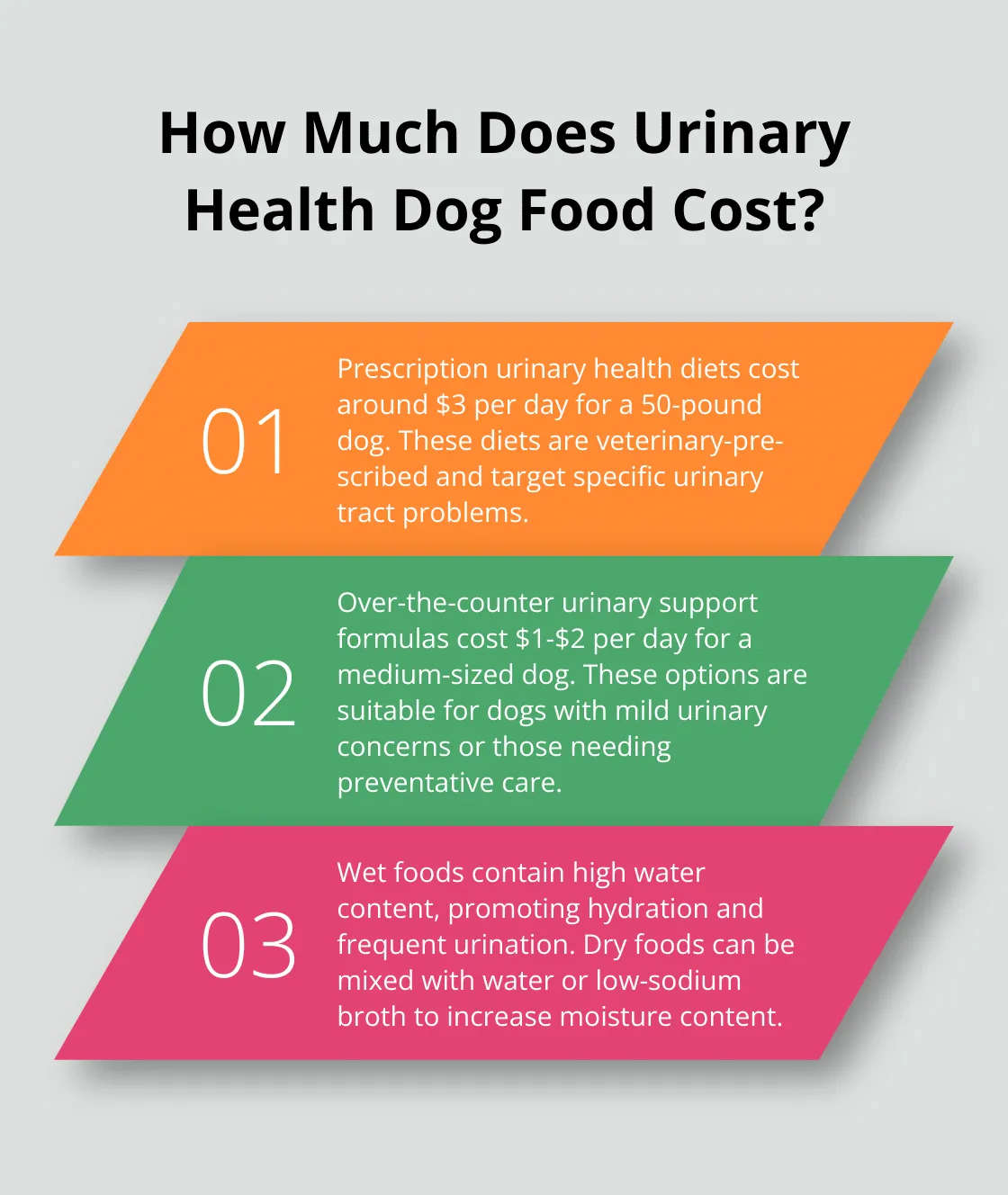Maintaining your dog’s urinary health is crucial for their overall well-being, and choosing the right dog food for urinary health can prevent common issues like infections and stones. At our site dedicated to pet care, we prioritize nutrition that supports your canine friend’s urinary tract. Whether your dog is prone to UTIs or you want preventive care, this guide covers causes, key ingredients, top food options, and expert tips to keep your pup healthy.
Urinary problems are widespread among dogs, affecting quality of life if ignored. By focusing on balanced diets, you can reduce risks and promote long-term wellness. Let’s dive into the essentials.
What Causes Urinary Issues in Dogs?
Urinary tract problems in dogs range from infections to crystal formations, impacting many pets regardless of age or breed. Studies, such as one in the American Journal of Veterinary Research, link bacterial growth to urolithiasis in about 65% of female dogs and 44% of males. While UTIs are common, stones and pH imbalances pose greater threats.
Several factors contribute: genetics (Dalmatians and Bulldogs are at higher risk due to metabolism), age, and diet. An ideal urine pH for dogs falls between 6 and 7.5; shifts outside this promote crystals that lead to blockages or pain. Untreated, these can become emergencies, as noted in veterinary resources on life-threatening symptoms.
 Infographic: Are Female Dogs More Prone to Urinary Infections? – dog food for urinary health
Infographic: Are Female Dogs More Prone to Urinary Infections? – dog food for urinary health
Diet profoundly influences urinary health. High levels of minerals like magnesium and phosphorus encourage stone formation, while low moisture diets concentrate urine, fostering bacteria. Quality protein matters too—excess low-grade sources spike urea, straining kidneys. Veterinarians often advise moderate, high-quality proteins alongside anti-inflammatory nutrients.
Key supportive nutrients include:
- Omega-3 fatty acids: Reduce inflammation in the urinary tract.
- Antioxidants (Vitamins C & E): Fight oxidative damage.
- Cranberry extract: Prevents bacterial adhesion in the bladder.
- Glucosamine: Strengthens bladder lining.
Regular vet visits with urinalysis are vital for early detection, complementing dietary strategies.
Essential Ingredients in Dog Food for Urinary Health
Selecting dog food for urinary health means prioritizing ingredients that balance minerals, boost hydration, and target urinary support.
High-quality proteins like chicken, turkey, lamb, or fish should top the list. For instance, formulas featuring premium lamb provide digestible amino acids without overloading the system—check options like acana lamb for balanced nutrition.
Controlled minerals are non-negotiable: Aim for phosphorus at 0.2-0.7%, magnesium under 0.1%, and calcium at 0.5-0.8% on a dry matter basis. These levels minimize struvite and oxalate stone risks.
Omega-3 sources (fish oil, flaxseed) and antioxidants from blueberries, cranberries, or sweet potatoes combat inflammation and stress. Experience from pet owners shows these ingredients improve urine dilution and comfort.
 Infographic: How Wet Is Your Dog
Infographic: How Wet Is Your Dog
Moisture is a game-changer—wet foods offer 75% water content versus 10% in kibble, promoting flushing. Mix in low-sodium broth with dry food or alternate formats for optimal hydration. Specialized additions like cranberry extract (backed by AVMA research) and glucosamine provide targeted UTI prevention.
These elements form the backbone of effective urinary diets, blending science with practical benefits.
Top Dog Food Choices for Urinary Health
Navigating options? Start with your dog’s needs—prescription or over-the-counter.
Prescription diets from vets address diagnosed issues with fiber for satiety and pH control, costing around $3/day for a 50-lb dog. They’re tailored but pricey.
Over-the-counter picks like Blue Buffalo or Royal Canin urinary formulas suit prevention, featuring cranberries and balanced minerals at $1-2/day. They’re accessible without a script.
Wet foods shine for hydration; research in PMC shows they increase liquid intake and dilute urine effectively. For dry kibble fans, verify mineral guarantees and add water. Combining both maximizes dental health and flushing.
 Infographic: How Much Does Urinary Health Dog Food Cost?
Infographic: How Much Does Urinary Health Dog Food Cost?
Always consult a vet before switches, especially with pre-existing conditions. Monitor urination, thirst, and energy post-change.
Final Thoughts on Supporting Urinary Health
The best dog food for urinary health integrates quality proteins, mineral control, omega-3s, and moisture to safeguard your dog’s urinary tract. Transition gradually over 7-10 days to prevent tummy upset, and track improvements via vet check-ups.
 Infographic: How to Support Your Dog
Infographic: How to Support Your Dog
Partner with your veterinarian for personalized plans—early intervention and nutrition yield lasting results. Share your dog’s urinary health journey in the comments, and explore more pet care tips on our site!
References:
- American Journal of Veterinary Research: Urolithiasis Study
- Today’s Veterinary Practice: Urine pH Guidelines
- AVMA Journals: Cranberry Extract Research
- PMC: Hydration Study
